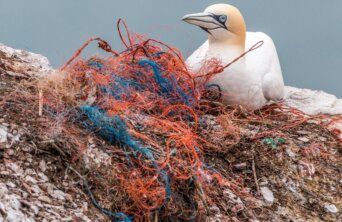- About
- Topics
- Picks
- Audio
- Story
- In-Depth
- Opinion
- News
- Donate
- Signup for our newsletterOur Editors' Best Picks.Send
Read, Debate: Engage.
| topic: | Pollution |
|---|---|
| located: | Malaysia, Canada |
| editor: | Lital Khaikin |
With the global treaty on plastic pollution to be determined in South Korea this fall, Canada’s compliance with international agreements and accountability for the plastic waste it continues to dump on developing countries has come to light.
While over ninety per cent of Canadian plastic waste is currently exported to the U.S., Malaysia is the largest Asian importer of Canadian plastic waste, accepting between half a million to a million kilograms monthly.
In March 2021, the Malaysian Environment Minister, Tuan Ibrahim Tuan Man, declared the importation of plastic waste illegal unless the waste is pure and unmixed. Last year, however, Canada’s total plastic waste exports to Malaysia increased to 9.8 million kilograms—nearly double that of 2022.
A Canadian Press investigation published in October 2023 denounced Canada’s continued export of hazardous waste abroad. With a lack of monitoring on plastic exports that don’t require a permit from the federal Environmental Department, Canada is effectively abdicating responsibility for what is done with the waste once it arrives at its destination. A federal plastics registry introduced in April 2024 is insufficient since Canada has still not ratified an article in the Basel Convention that prohibits hazardous waste export to developing countries.
Most Canadian plastic waste sent to Malaysia is styrene, a non-biodegradable and petroleum-based cyclic hydrocarbon commonly used for packing materials and producing synthetic rubber and latex, home insulation, pipes, and car parts. Styrene is primarily produced by the U.S., Japan, the U.K., and Germany, with the Texas-based company Chevron Phillips accounting for almost a quarter of all global production.
Styrene plants release high levels of benzene air pollution, and factory workers are routinely exposed to carcinogenic gases that damage the liver and central nervous system. Malaysia’s styrene production is based at the country’s only production plant, Japan-owned Idemitsu Styrene Monomer, in the industrial port city of Pasir Gudang.
While new methods are being developed to recover high-purity styrene from post-consumer waste, there are still no standard methods to dispose of styrene products in environmentally responsible ways.
This past April, negotiations on the international legally binding instrument on plastic pollution in Ottawa emphasised a multilateral fund that would support developing countries with sustainable waste management methods for legacy plastic waste, non-biodegradable waste and forever chemicals leeching into soil and water.
Malaysia currently lacks adequate laws for plastics waste management and enforcement for non-compliance. Despite this and Malaysia’s ban on impure plastic imports, Canada has nearly doubled its plastic waste exports to Malaysia.
With the historic plastic treaty to be determined this fall, the question that remains is whether Canada will be held accountable for the plastic waste it dumps on the Global South.
Image by Silke.

